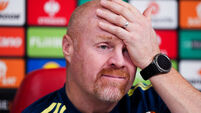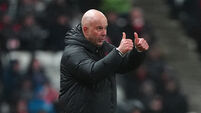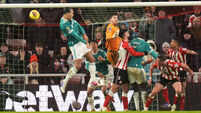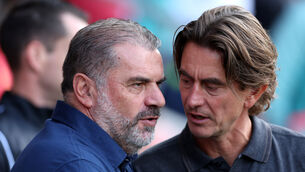Arsene knows?
EVEN in the unthinkable event of Arsene Wenger being solemnly called into the chairman’s office at Arsenal, he’s unlikely to read the signals.
“When I first went to Japan,” he recounted to friends recently, “I coached in the English language. I had an English translator but we lost the first five or six games and the chairman asked to meet me. I expected the sack, losing five or six games usually means bye-bye. The chairman told me he’d taken a very big decision, and I said ‘I understand’. He told me he had sacked the translator. I said ‘thank you very much, but it’s not his fault, I lost the games’. I saved the translator, we won a few games and I stayed at the club.”














